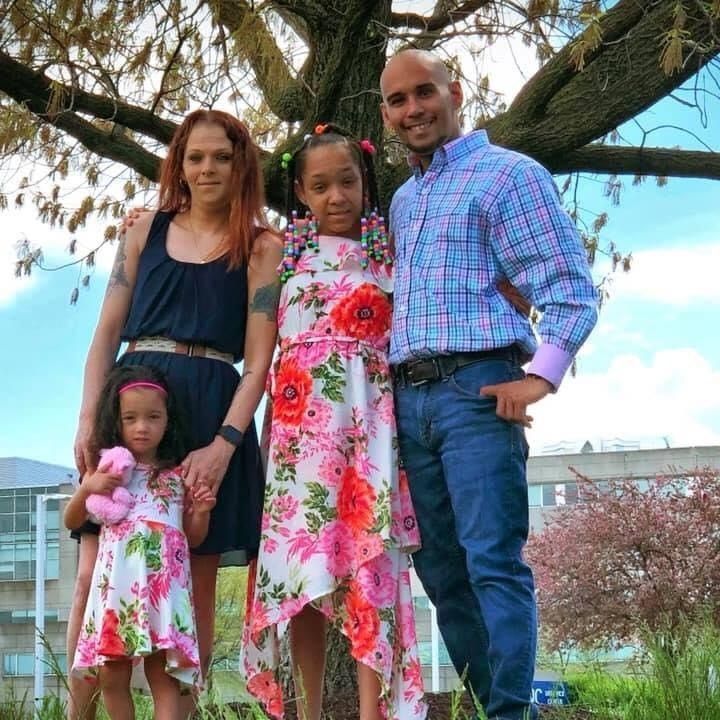
Situational poverty has the power to affect anyone in the community. This kind of poverty is typically caused by an unexpected emergency or loss. This could be a serious illness, divorce, death, a vehicle breakdown, or a global pandemic.
We knew early on in the COVID-19 pandemic that it would be hitting families who were already struggling the most -- but what about families who were just getting by?
Meet Aram, Jessica, and their daughters, Maleah and Aramya (pictured left).
Prior to COVID, their family had financial struggles, but they were able to make ends meet. Aram was the sole provider of his family working as a subcontractor for a hardware department store. Jessica stayed home to care for their two daughters. Maleah and Aramya both have medical conditions that allow the family to receive Social Security Disability Insurance (SSDI). Maleah, 13, has neurofibromas (NF1) and is autistic with an intellectual disability, Attention Deficit Disorder (ADD). Aramya is 5 years old with a growth disability called Russell-Silver syndrome, which sometimes means Aramya needs to eat through a feeding tube.
When COVID began to impact the U.S., because of the nature of his work, Aram was laid off from his job. This meant that they now lost their main source of income. In addition to losing his income, Aram has another lingering stress -- keeping his family safe. Along with his two daughters, he himself is immune-compromised. This means that even if Aram can go back to work, he might not be able to for the safety of himself or his family because of COVID.
Tri County Community Action's (TCCA) Self-Sufficiency Case Manager was able to put Aram and his family back on track by enrolling the family in SNAP benefits and connecting them with school lunch programs for the girls. TCCA also enrolled Aram in the OnTrack program. OnTrack is a special payment plan that offers reduced monthly payments, protection from shutoffs, and debt forgiveness. In addition, the young parents were able to gain 2 months of rent relief from the CARES Acts through TCCA’s connections. With the help from these programs, TCCA’s Case Manager was able to work with Aram and Jessica to pay off some debts -- allowing the family to have a buffer of credit if they need to go back to relying on credit cards.
Situational poverty is usually temporary thanks to the social safety nets like TCCA and other programs the U.S. has in place. You can help families like Aram's escape from the grips of poverty by supporting TCCA through a tax deductible donation. Every donation received goes directly towards ending poverty, permanently!
If you lost your source of income due to COVID-19, contact the TCCA office near you and get connected to the services and solutions needed for a more sustainable future.

